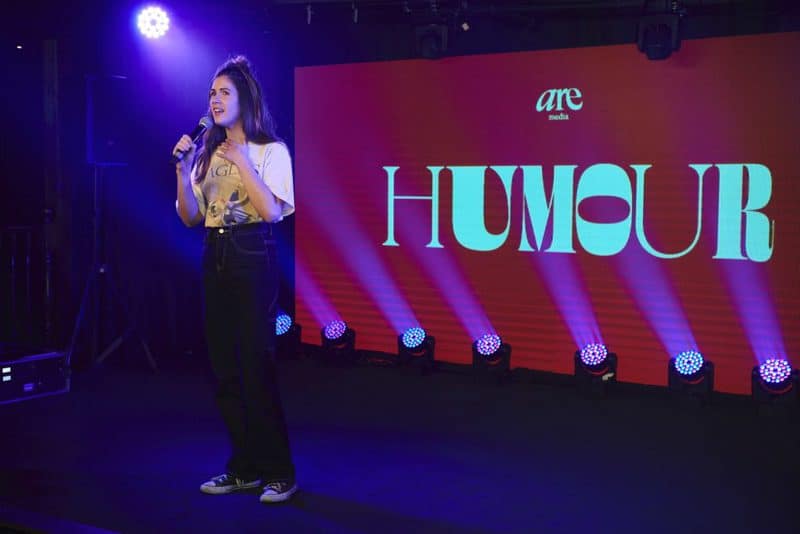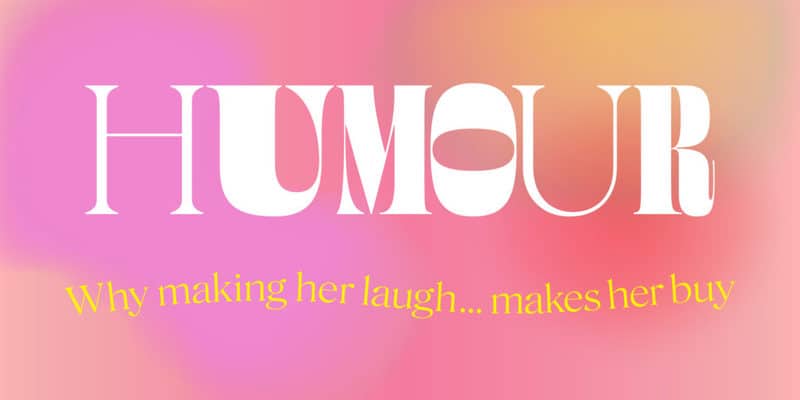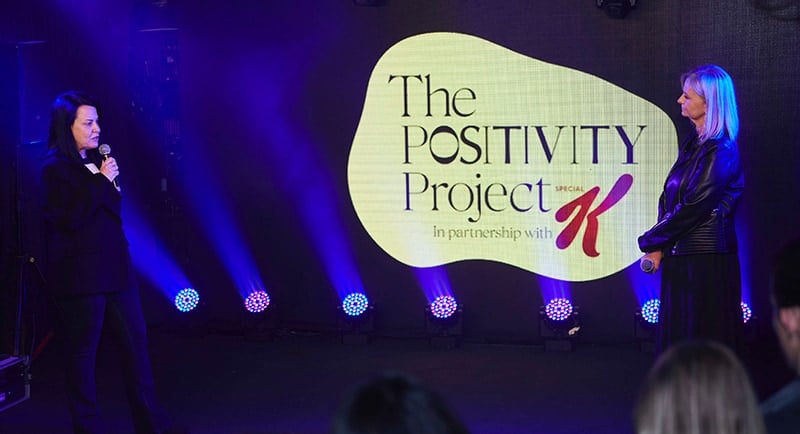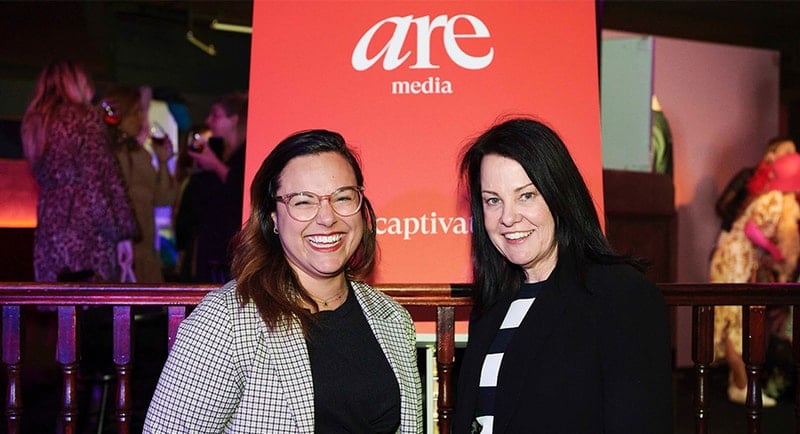Are Media is helping show how brands can better use humour to improve ad receptivity as part of The Positivity Project, a network wide initiative celebrating the power of humour and positivity in women’s lives in partnership with Kellogg’s Special K.
Launched last night at Sydney’s Mary’s Underground with comedian Becky Lucas and Peking Duk, in front of an audience of advertisers and media agency executives, Are Media revealed the findings of Humour, a major research study into the use of humour in advertising, using cultural analysis, quantitative and qualitative analysis and AI-driven semiotics of social media posts.

Becky Lucas at the Are Media Humour Launch
The research will be used to inform editorial and commercial content across Are Media’s portfolio of brands as part of The Positivity Project, which will highlight the impact positivity has on health and wellness, inspiring women to find joy through laughter.
According to the findings, women are more likely than men to use humour when they are worried or stressed, 87 percent women compared to 82 percent men, and when they are grumpy or in a bad mood, 84 percent women compared to 74 percent of men.
Research from Kantar has found that humour improves ad receptivity for both men and women more than any other ad characteristic. However, data from UK Kantar research shows only 22 percent of ads that feature women use humour as a marketing tactic, compared to 51 percent featuring men.

Nat Bettini, research director at Are Media said: “Now more than ever laughter is an important survival tool regardless of gender. It is an intrinsic part of the Australian identity and helps achieve a sense of meaning, fulfilment and contentment and yet advertisers, brands and their creative partners are missing a trick when it comes to using humour to engage women.
“Evidence from our own brands also shows humour drives improved interaction. Humorous marie claire Instagram posts achieve three times higher engagement, and for The Australian Women’s Weekly it’s more than twice. There’s no doubt we have come a long way from the days when women were punch lines to mens’ jokes, but more can be done to use humour in advertising targeting women as we know it delivers results.”
The study, which was conducted in partnership with The Lab, found that using humour doesn’t have to be a belly laugh, but can be as small as a wry smile. It identified five ways brands can use humour to make her laugh, make that emotional connection and ultimately impact the path to purchase. This includes Modern Wit, which reflects on life’s ups and downs to get to the truth and ultimately make us feel less alone, to Tender Togetherness, celebrating our closest bonds, strengths and imperfections. Each of the five humour archetypes have then been matched to various product categories seen as best suited to achieve the greatest cut through with women.

Jane Huxley and Jane Waterhouse
Andrew Cook, director of sales at Are Media added: “This ground breaking research will help inform our advertising partners on how they can better engage with women by using humour in their marketing. Our brands and commercial solutions team are currently working directly with advertising partners, using the insights we have gathered to engineer their content and campaigns to make her laugh.
“As a business we’re committed to having the deepest understanding of Australian women. I want to thank Special K for partnering on The Positivity Project which will feature across our portfolio of premium content brands including Marie Claire, ELLE.com.au, Who, Woman’s Day and Now to Love.”
Top Image: Sarah Hagarty, Special K Brand Manager, Kellogg’s and Jane Huxley, CEO, Are Media
